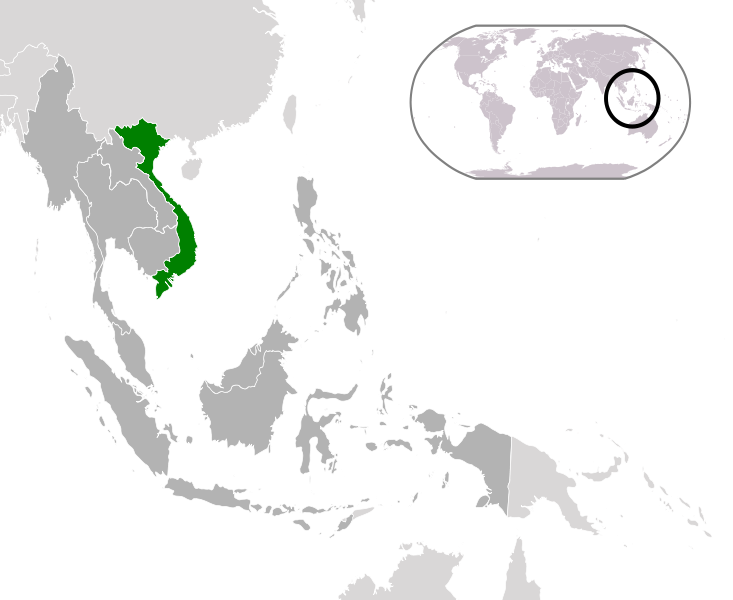
Location: Southeastern Asia, bordering the Gulf of Thailand, Gulf of Tonkin, and South China Sea, alongside China, Laos, and Cambodia Geographic coordinates: 16 00 N, 106 00 E Map references: Southeast Asia Area: Area - comparative: slightly larger than New Mexico Land boundaries: Coastline: 3,444 km (excludes islands) Maritime claims: Climate: tropical in south; monsoonal in north with hot, rainy season (mid-May to mid-September) and warm, dry season (mid-October to mid-March) Terrain: low, flat delta in south and north; central highlands; hilly, mountainous in far north and northwest Elevation extremes: Natural resources: phosphates, coal, manganese, bauxite, chromate, offshore oil and gas deposits, forests, hydropower Land use: Irrigated land: 18,600 sq km (1993 est.) Natural hazards: occasional typhoons (May to January) with extensive flooding Environment - current issues: logging and slash-and-burn agricultural practices contribute to deforestation and soil degradation; water pollution and overfishing threaten marine life populations; groundwater contamination limits potable water supply; growing urban industrialization and population migration are rapidly degrading environment in Hanoi and Ho Chi Minh City Environment - international agreements: |

John F. Kennedy Admins 1960 - 63
Final Offensive/Fall of Saigon